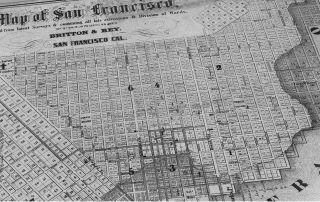The Hidden Cost of Bundled Parking
C.J. Gabbe, Gregory Pierce
Urban renters in the US face fast-rising housing prices, especially in coastal metropolitan areas. Price increases are in part due to restrictive land-use regulations. Minimum off-street parking requirements, a central component of land-use regulation in the US, warrant detailed study and policy reform. In most cities today, municipal regulation requires developers to provide on-site parking. Renters or buyers then pay for this parking as part of their monthly rent or purchase price; the price of parking is thus “bundled” with the price of the housing unit. While many households might have chosen to pay for on-site parking in a free market, this proportion is surely lower than what has been mandated. Moreover, the historical effect of minimums and bundled parking hides a transportation cost burden in housing prices, leaving households unable to choose. Minimum parking requirements force developers to build costly parking spaces that drive up the price of housing. Urban policymakers have recently taken an interest in reforming parking regulations and allowing unbundled parking based on social equity and environmental sustainability rationales.



